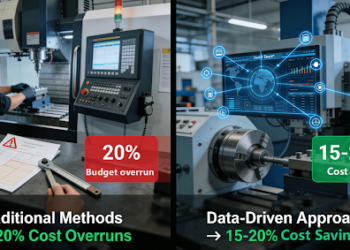In today’s digital landscape, data is the new currency. Every click, every transaction, and every interaction generates a wealth of information that can drive decision-making and innovation. However, handling this influx of data has become increasingly complex. Enter Dados as—a revolutionary approach to managing and harnessing the power of data.
Imagine a world where processing vast amounts of information is seamless and intuitive. A world where businesses can quickly adapt to changing trends without getting bogged down by cumbersome systems. This is what Dados as promises: an innovative framework transforming how we handle data across industries.
As we dive deeper into this topic, you’ll discover how Dados as stands out from traditional methods and why it’s becoming essential for organizations striving to stay competitive in a fast-paced environment. Buckle up; we’re about to explore the future of data handling together!
The Evolution of Data Handling
Data handling has come a long way since the early days of punch cards and magnetic tapes. Initially, data was cumbersome and difficult to manage. The technology available limited businesses’ capabilities in processing information efficiently.
As computers became mainstream, databases emerged. Relational database management systems revolutionized how organizations stored and accessed data. With structured query language (SQL), users could retrieve information with ease.
The advent of big data brought another shift. Companies began dealing with massive volumes of unstructured data from various sources like social media and IoT devices. Traditional methods struggled to keep up, leading to the development of NoSQL databases.
Today’s landscape incorporates cloud computing, allowing for scalable storage solutions accessible worldwide. Data analytics tools have evolved as well, enabling real-time insights that drive decision-making processes across industries.
This evolution reflects our growing need for agility in managing vast amounts of diverse information efficiently.
What Makes Dados Different?
Dados as stands out in the crowded field of data management through its innovative architecture. Unlike traditional databases that rely on rigid schemas, Dados embraces flexibility. This adaptability allows users to model their data in ways that align more closely with real-world structures.
Another defining feature is its focus on accessibility. With user-friendly interfaces and powerful APIs, individuals at all skill levels can interact with complex datasets without extensive training. This democratization of data empowers organizations to leverage insights quickly.
Moreover, Dados prioritizes integration capabilities. It seamlessly connects with various platforms and tools, ensuring smooth workflows across different systems. This interoperability minimizes disruptions and enhances productivity for teams working collaboratively.
Dados offers advanced analytics directly embedded within the platform, enabling immediate insights from raw data without needing additional software or processes. These characteristics collectively make Dados a game-changer in modern data handling approaches.
Advantages of Using Dados
Using Dados brings a plethora of advantages that can significantly enhance data handling processes. One standout feature is its ability to integrate seamlessly with various data sources. This flexibility allows users to gather insights from disparate systems without the hassle.
Another key benefit lies in its user-friendly interface. Even those with minimal technical skills can navigate through complex datasets effortlessly. This ease of use empowers teams across an organization, fostering collaboration and innovation.
Speed is another crucial advantage. Dados optimizes data processing, enabling faster analysis and reporting. Businesses can make informed decisions swiftly, gaining a competitive edge in their respective markets.
Security features also deserve attention. With robust encryption methods and access controls, Dados ensures sensitive information remains protected against unauthorized access.
The adaptability of Dados means it evolves alongside organizational needs, making it a future-proof solution for any business looking to elevate its data management practices.
Real-World Applications of Dados
Dados as technology offers a wide array of real-world applications that redefine how organizations manage their data. In the healthcare sector, for instance, Dados can streamline patient records management. This leads to quicker access and improved decision-making in critical situations.
Retail businesses leverage Dados to enhance customer experiences. By analyzing purchasing patterns, they tailor promotions and inventory based on real-time insights.
Additionally, financial institutions utilize Dados for risk assessment and fraud detection. Its ability to process vast amounts of information allows banks to identify anomalies quickly.
Education also benefits from this innovative approach. Institutions harness Dados to analyze student performance data, enabling personalized learning paths that cater to individual needs.
Across various sectors, the versatility of Dados is evident. Organizations are discovering new ways to harness its potential every day. As adoption grows, so too does our understanding of its transformative impact on industries worldwide.
Limitations and Challenges of Dados
While Dados as offers numerous advantages, it also comes with its share of limitations. One primary challenge is the steep learning curve associated with its implementation. Organizations may face difficulties in training staff to effectively utilize this innovative data management tool.
Data security remains a critical concern. With large volumes of sensitive information being processed, ensuring compliance with privacy regulations can be daunting. Any lapse in safeguarding data could lead to significant repercussions.
Additionally, integration with existing systems can pose hurdles. Companies often rely on legacy software that might not seamlessly mesh with Dados as technology. This incompatibility can hinder organizations from fully harnessing the potential benefits.
The cost factor cannot be ignored. Investing in new technologies and infrastructure may strain budgets, particularly for smaller businesses aiming to leverage Dados as capabilities without compromising financial stability.
The Future of Data Handling with Dados
The future of data handling with Dados is bright and full of potential. As organizations embrace the digital age, the need for efficient data management becomes critical. Dados as a framework offers innovative solutions that adapt to changing needs.
Real-time analytics will become standard practice. Businesses can access insights almost instantaneously, allowing them to make informed decisions quickly. This agility creates opportunities for competitive advantages in various sectors.
Furthermore, machine learning integration within Dados enhances predictive analytics capabilities. Companies can anticipate market trends and consumer behavior more accurately than ever before.
Scalability is also crucial in this evolving landscape. Dados systems are designed to grow alongside businesses, seamlessly accommodating increasing volumes of data without compromising performance or efficiency.
With increased focus on security measures embedded into these frameworks, organizations can trust their sensitive information remains protected while still harnessing its power effectively.
Conclusion
As we explore the landscape of data management, Dados as stands out as a transformative force. The evolution from traditional methods to innovative solutions like Dados has reshaped how organizations interact with their data.
The distinct features of Dados as set it apart in an increasingly crowded field. Its user-friendly interfaces and advanced analytical capabilities provide tools that make complex tasks more manageable. Additionally, its versatility allows for seamless integration into various industries.
The advantages are compelling. Enhanced decision-making processes, improved efficiency, and the ability to harness real-time insights empower businesses to stay ahead in competitive markets. Real-world applications showcase its effectiveness across sectors—from healthcare analytics to financial forecasting—demonstrating its broad utility.
However, no solution is without challenges. Data security concerns and implementation hurdles must be addressed proactively to maximize the benefits of Dados as.
Looking forward, the potential for growth in this arena is immense. As technology continues to evolve, so too will the capabilities offered by Dados as—a promising sign for future developments in data handling practices.
Embracing these advancements can lead organizations toward smarter strategies and better outcomes in their operations moving forward.










